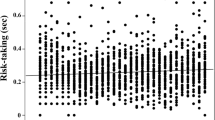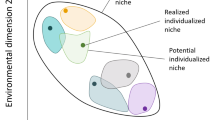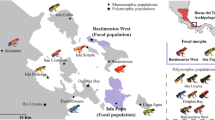Abstract.
Using the lizard Anolis carolinensis as its subject, an early and enduring model of psychobiology was presented in which neuroendocrines and social behavior interact to coordinate reproduction between the sexes. The adaptive context for the model was protandry, here defined as a "male-first" emergence pattern from winter dormancy to the onset of breeding. In the protandry scenario, males emerge, become reproductive, and contest for territories. Then, pre-reproductive females emerge to settle on male territories, whereby ovarian recrudescence is facilitated by the behavior of courting males. A collateral inference of the protandry sequence is that females are choosing their future mates from among local males and their territories (i.e., intersexual selection). The model and its assumptions, though never validated by field data, have served as the paradigm for many laboratory experiments on A. carolinensis. Recently, however, field studies described an intrasexually selected mating system for A. carolinensis, without evidence of direct female choice. Differences between the selective inferences from the two perspectives led us to test in the field a number of protandry-based characteristics previously ascribed to A. carolinensis. We monitored free-ranging adults across the winter-to-breeding period using data on sex ratios, social behavior, gut contents, sex steroids, and gonadal condition. We found no evidence of protandry, and little support for any of the associated assumptions. Instead, the sexes broadly overlapped in their temporal transition from winter retreats to an active status in the habitat, with average male reproductive development about 1–2 weeks in advance of females. We replace the traditional protandry-based A. carolinensis paradigm with a realistic onset sequence into the breeding season and a new model for the species' mating system. Our study underscores the need for field validation when laboratory-generated data are fitted to adaptive paradigms.
Similar content being viewed by others
Author information
Authors and Affiliations
Additional information
Electronic Publication
Rights and permissions
About this article
Cite this article
Jenssen, T.A., Lovern, M.B. & Congdon, J.D. Field-testing the protandry-based mating system for the lizard, Anolis carolinesis: does the model organism have the right model?. Behav Ecol Sociobiol 50, 162–172 (2001). https://doi.org/10.1007/s002650100349
Received:
Revised:
Accepted:
Issue Date:
DOI: https://doi.org/10.1007/s002650100349




